Vice Chairman of the National Assembly Nguyen Khac Dinh chaired a meeting to give opinions on the draft Law on Organization of Local Government (amended). Photo: Ho Long
Local authorities at provincial and communal levels both organize People's Councils and People's Committees.
Presenting the Draft Law, Minister of Home Affairs Pham Thi Thanh Tra said that the Draft Law was developed to fundamentally amend the regulations on the demarcation of administrative units and the organization of local governments to fully institutionalize the policies and orientations in the Party's Documents and Resolutions, the Conclusions of the Politburo and the Secretariat, and to specify the provisions of the 2013 Constitution (after amendments and supplements) to convert the local government organization model from the current 3 levels (including provincial, district and communal levels) to 2 levels (including provincial and communal levels).
View of the meeting. Photo: Ho Long
The Draft Law consists of 7 chapters and 54 articles, basically inheriting the organizational principles and the principles of delimitation of authority of the current Law; amending and supplementing regulations to implement the 2-level local government organization model.
Regarding the division of administrative units and the organization of two-level local governments, the draft Law stipulates that the provincial level includes provinces and cities; the communal level includes communes, wards and special zones (on islands). For special economic administrative units, the current regulations are maintained and established by the National Assembly. Both provincial and communal governments organize People's Councils and People's Committees to ensure a unified government apparatus that operates smoothly from the central to communal levels.
Regarding the organization of local government, for provincial-level local governments, the draft Basic Law maintains the current regulations, only increasing the number of provincial-level People's Council delegates to match the merger of provincial-level administrative units.
Chairman of the Law and Justice Committee Hoang Thanh Tung presented the Report on the review of the draft Law. Photo: Ho Long
Regarding the organizational structure of the People's Council and People's Committee at the commune level (commune, ward, special zone), the draft Law stipulates that the People's Council at the commune level has 2 Committees: the Legal Committee and the Economic - Social Committee. The People's Committee at the commune level is allowed to organize specialized agencies, other administrative organizations or arrange specialized civil servant positions to advise and assist the People's Committee at the commune level in managing sectors and fields in the area in accordance with the scale of the (new) commune-level administrative unit according to the Government's regulations.
Presenting the Report on the review of the draft Law, Chairman of the Committee for Law and Justice Hoang Thanh Tung agreed to the fundamental and comprehensive amendment of the current Law on Organization of Local Government for the reasons stated in the Government's Submission, and agreed to the drafting of the draft Law following the shortened procedures. The dossier of the draft Law is complete, in accordance with regulations, and qualified to be submitted to the Standing Committee of the National Assembly and the National Assembly for consideration following the shortened procedures.
Regarding the specific contents of the draft Law, the Committee on Law and Justice recommends that the drafting agency continue to review, revise, and clarify whether the regulation that the People's Committee at the commune level has the authority to decentralize to specialized agencies and other administrative organizations under the People's Committee at its level meets the requirements of building a commune-level government close to the people, responsible for all local issues or not? Should it be regulated that the People's Council at the commune level take a vote of confidence for positions elected by the People's Council or not while Regulation No. 96-QD/TW of the Politburo on taking a vote of confidence for positions, leadership and management positions in the political system and Resolution No. 96/2023/QH15 of the National Assembly on this content both stipulate that no vote of confidence should be taken for positions at the People's Council and People's Committee at the commune level?
Minister of Home Affairs Pham Thi Thanh Tra presents the Draft Law. Photo: Ho Long
At the same time, the Committee on Law and Justice also requested the drafting agency to clarify the regulations on the number of delegates to the People's Council at the provincial and communal levels; the organization of specialized agencies and other administrative organizations under the People's Committee at the communal level to ensure compliance with local requirements and practices and the policy of restructuring and streamlining the apparatus; and the concretization of Conclusion No. 150-KL/TW of the Politburo on the appointment of positions of the People's Council and People's Committee when restructuring administrative units.
Chairman of the Delegation Work Committee Nguyen Thanh Hai speaks. Photo: Ho Long
In particular, the Committee recommends continuing to review the transitional provisions in the draft Law and other relevant provisions to cover all cases requiring the transfer of tasks, powers, and work of district-level authorities when implementing the 2-level local government model (without organizing the district level), avoiding omissions, affecting the continuity and smoothness in the operation of the local government apparatus as well as affecting the legitimate rights and normal operations of people and businesses in the area.
The People's Council of the commune needs to organize a vote of confidence for the positions elected by the People's Council.
Members of the National Assembly Standing Committee said that the draft Law dossier had been prepared carefully, seriously, thoroughly, and in accordance with the order and procedures of the Law on Promulgation of Legal Documents; the regulations all ensured constitutionality, legality, consistency, and synchronization with the current legal system.
Permanent Deputy Head of the People's Aspirations and Supervision Committee Le Thi Nga speaks. Photo: Ho Long
Agreeing with the provisions on the division of powers, decentralization, and authorization in the draft Law, Permanent Deputy Head of the People's Aspirations and Supervision Committee Le Thi Nga said that it is necessary to add the word "may" in the provision in Clause 1, Article 13 of the draft Law to allow the People's Committee at the commune level to decentralize to specialized agencies and other administrative organizations under the People's Committee at its level.
Because, if the commune has a large geographical and socio-economic scale, the Commune People's Committee needs to be decentralized to specialized agencies and other administrative organizations under the People's Committee at its level to be able to promptly handle administrative processes and procedures for businesses, people, as well as arising issues. "The provision adding the word "may" will ensure flexibility in the application process", the Standing Deputy Chairman of the People's Aspirations and Supervision Committee emphasized.
Similarly, regarding the classification of the organizational structure of local governments at the commune level, the Vice Chairman of the People's Aspirations and Supervision Committee said that it is necessary to base on the size of the commune to have a suitable classification of the organizational structure of the commune level; assign the Government and provincial authorities to have flexible instructions, suitable to the characteristics of the population size, area of the locality as well as the work requirements of the locality. The Government needs to review and research to have a suitable expression in the draft Law, and should not have "rigid" regulations on the organizational structure of the commune level as it is now.
Agreeing with the regulation that the People's Council at the commune level shall take a vote of confidence for positions elected by the People's Council, Permanent Vice Chairwoman of the People's Aspirations and Supervision Committee Le Thi Nga stated that the commune level is the level directly and closely connected to the people, so it is necessary to organize a vote of confidence; suggesting that the Government should seek opinions from competent authorities before submitting it to the National Assembly for consideration and decision.
The draft Law has been amended to transfer the authority of the National Assembly Standing Committee in classifying administrative units to the authority of the Government (stipulated in Clause 2, Article 3 of the draft Law); amend and supplement a number of provisions on the functions of the People's Council in Article 5, and of the People's Committee in Article 6.
Regarding the above amendments and supplements to the draft Law, Chairman of the Delegation Work Committee Nguyen Thanh Hai noted that the 2013 Constitution is being studied for amendments and supplements to ensure its suitability with reality, including a number of provisions related to local authorities. Therefore, the drafting agency needs to carefully study the directions as well as the contents expected to be amended and supplemented to the 2013 Constitution to ensure its constitutionality, legality, consistency and synchronization after the Constitution is amended.
Regarding the People's Council, Article 5 of the draft Law has removed the provision that "the People's Council consists of People's Council delegates elected by local voters"; added the provision that the People's Council decides on important local issues, supervises compliance with the Constitution and laws, and supervises the activities of state agencies.
Chairman of the Delegation Affairs Committee Nguyen Thanh Hai suggested that the Government consider removing the provision that “the People’s Council consists of People’s Council deputies elected by local voters”. Because the case where a People’s Council deputy is not elected by local voters but is still assigned to the position of People’s Council leader will only occur in 2025, when the apparatus is streamlined. According to the Chairman of the Delegation Affairs Committee, it is necessary to carefully consider removing this provision to ensure compliance with the provisions of the current 2013 Constitution as well as the direction of amending the Constitution that is being implemented.
Concluding the discussion, Vice Chairman of the National Assembly Nguyen Khac Dinh stated that the National Assembly Standing Committee basically agreed with the main contents of the draft Law submitted by the Government; and requested that the Government, based on the review opinions and opinions at the meeting, promptly complete the dossier of the Law project to submit to the National Assembly at the upcoming Ninth Session. The Law and Justice Committee, based on the dossier of the Government's new Law project, promptly complete the Law project's verification report.
Regarding some specific contents, the Vice Chairman of the National Assembly suggested that the draft Law should not stipulate that “The People’s Committee at the commune level decentralizes…”, but can only stipulate that “The People’s Committee at the commune level assigns tasks to specialized agencies and other administrative organizations under the People’s Committee at its level”; and, report more thoroughly on this content in the Government’s Submission. At the same time, it is necessary to strengthen inspection, supervision and coordination to ensure that the government is close to the people, serves the people best, but operates flexibly, effectively, and quickly handles arising problems.
Regarding the vote of confidence at the People's Council at the commune level, the Vice Chairman of the National Assembly suggested that it is necessary to design it as prescribed in the current Law on Organization of Local Government; and to seek opinions from competent authorities before submitting it to the National Assembly for consideration and approval.
Thanh Hai
Source: https://daibieunhandan.vn/bao-dam-chinh-quyen-dia-phuong-phuc-vu-dan-tot-nhat-dieu-hanh-linh-hoat-xu-ly-nhanh-van-de-phat-sinh-post411704.html


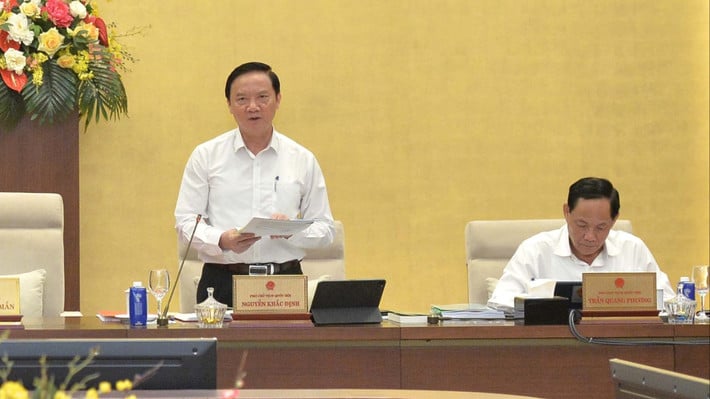
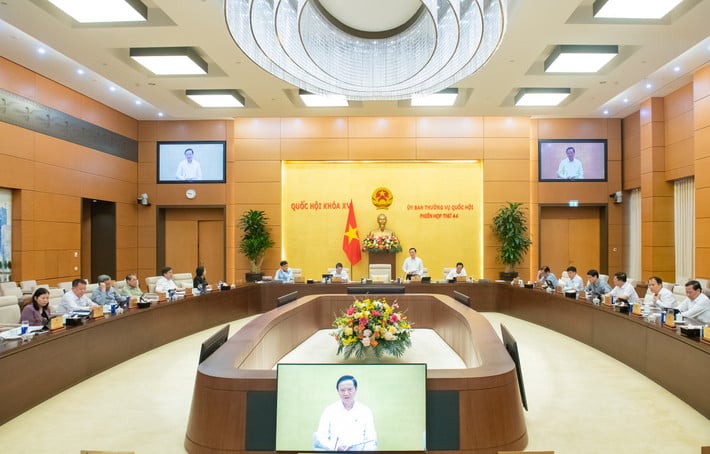
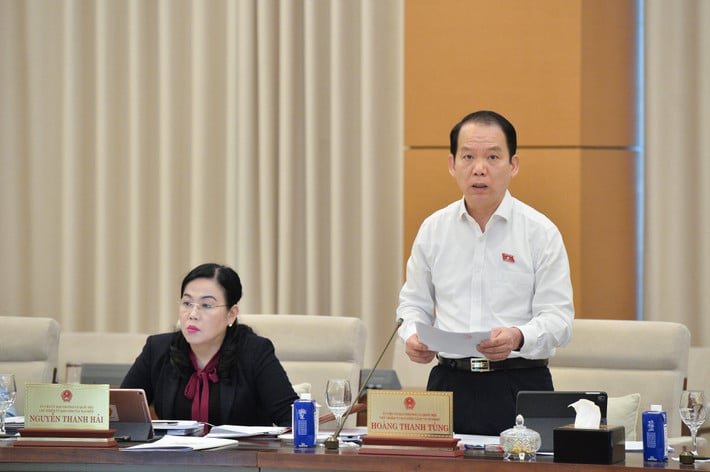
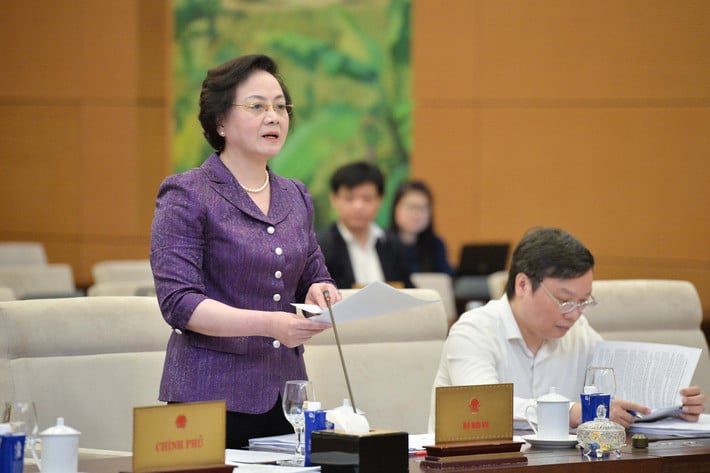
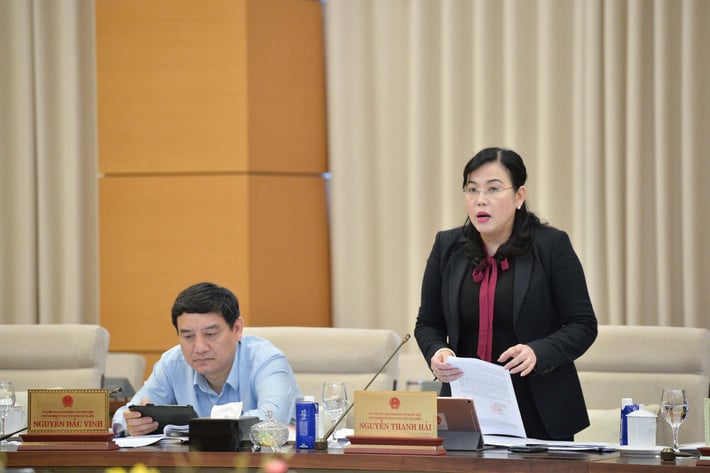
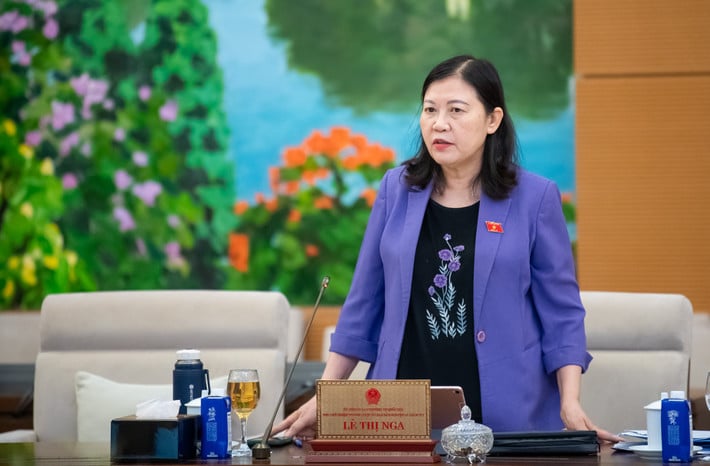

![[Photo] The parade took to the streets, walking among the arms of tens of thousands of people.](https://vphoto.vietnam.vn/thumb/1200x675/vietnam/resource/IMAGE/2025/4/30/180ec64521094c87bdb5a983ff1a30a4)


![[Photo] Chinese, Lao, and Cambodian troops participate in the parade to celebrate the 50th anniversary of the Liberation of the South and National Reunification Day](https://vphoto.vietnam.vn/thumb/1200x675/vietnam/resource/IMAGE/2025/4/30/30d2204b414549cfb5dc784544a72dee)
![[Photo] Cultural, sports and media bloc at the 50th Anniversary of Southern Liberation and National Reunification Day](https://vphoto.vietnam.vn/thumb/1200x675/vietnam/resource/IMAGE/2025/4/30/8a22f876e8d24890be2ae3d88c9b201c)
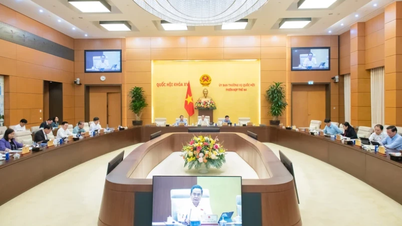

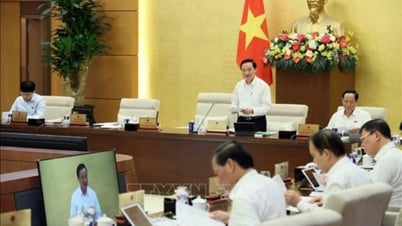
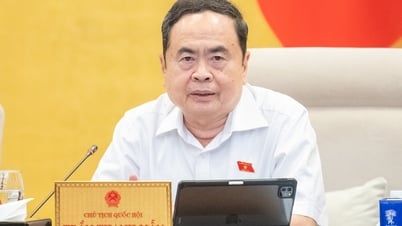


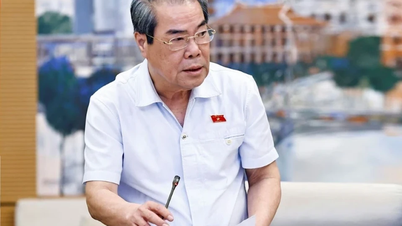













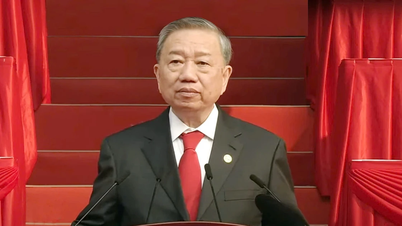
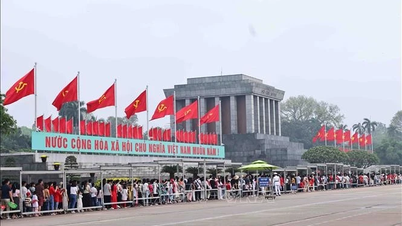

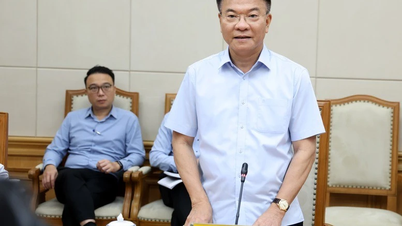
![[Photo] Performance of the Air Force Squadron at the 50th Anniversary of the Liberation of the South and National Reunification Day](https://vphoto.vietnam.vn/thumb/1200x675/vietnam/resource/IMAGE/2025/4/30/cb781ed625fc4774bb82982d31bead1e)















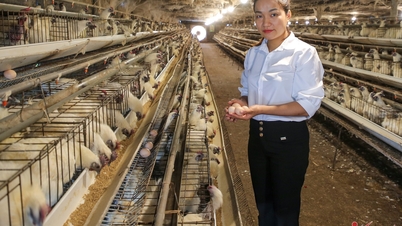


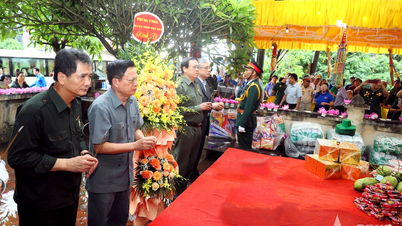
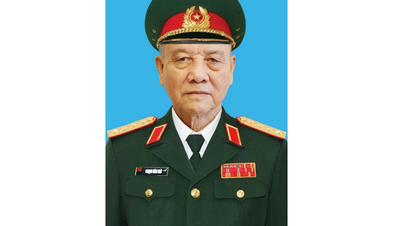















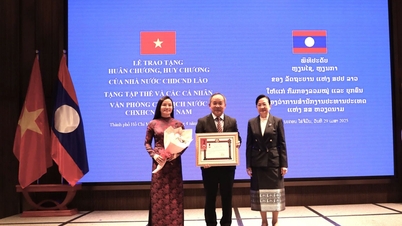



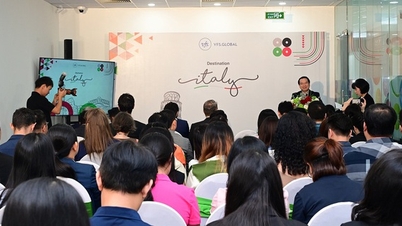
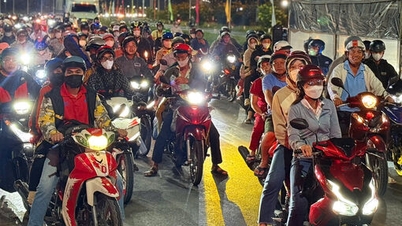


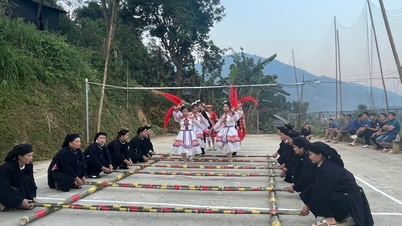
















Comment (0)